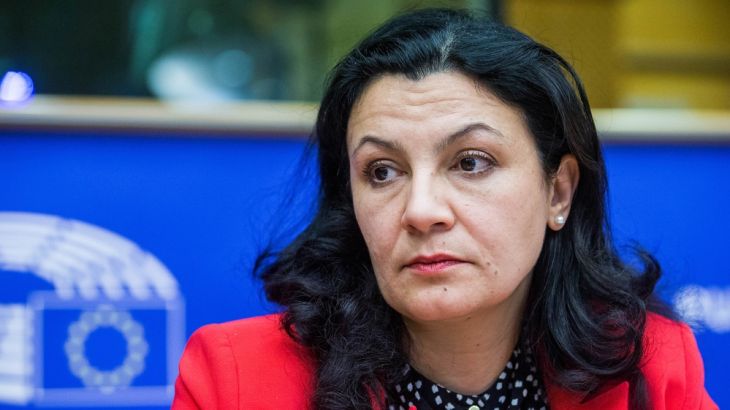
Is Ukraine losing the war with Russia?
We challenge Ukraine’s Deputy prime minister, and discuss whether Brazil’s democracy could be under threat.
On this week’s UpFront, we speak with Ukrainian deputy prime minister for European and Euro-Atlantic Integration, Ivanna Klympush-Tsintsadze, about the ongoing conflict in Eastern Ukraine and the situation in Russian-annexed Crimea.
And we discuss whether or not Jair Bolsonaro, the controversial frontrunner in the Brazilian elections could be a threat to Brazil’s democracy.
Keep reading
list of 4 itemsRussia-Ukraine two years on: towards an endless and wider war?
Ukraine military says it hit Zalyv shipyard in Russian-annexed Crimea
Sirens in Sevastopol as Ukraine ramps up attacks on Crimea
Headliner – Ukraine Vice PM: Crimea ‘will one day come back home’.
In this week’s Headliner, we challenge Ivanna Klympush-Tsintsadze on Ukraine’s defensive war with Russia, and the state’s support of neo-Nazi groups.
The conflict between Russia and Ukraine is dragging into its fifth year in the eastern Donbass region, following Russia’s annexation of Crimea.
More than 10,000 people have been killed there since 2014 and casualties continue to pile up. With Russia and its proxies still in control of Crimea and the Donbass region, is the government of Ukraine losing this war?
“It’s totally the opposite,” said Ivanna Klympush-Tsintsadze, Ukrainian Deputy prime minister, adding that Ukraine is winning by “securing worldwide support”.
When asked about some of the far-right militias that are helping in the fight against Russia, such as the Azov Battalion, which has been accused of using Nazi symbols, Klympush questioned whether they are a neo-Nazi grouping, and said that “they are not connected to the state, and that’s where the red line is”.
Commenting on the status of Crimea, illegally annexed by Russia, Klympush said that Crimea “will one day come back home”.
Arena – Is Brazil’s democracy under threat?
In the Arena, we discuss the rise of controversial presidential candidate Jair Bolsonaro and whether he threatens Brazil’s democracy.
On October 28, Brazilians will head to the polls in the world’s 4th biggest democracy, with Jair Bolsonaro expected to win the presidency.
In the first round of the presidential election, Bolsonaro and his Social Liberal Party (PSL) secured 46 percent of votes – one-third of the registered vote.
Bolsonaro is criticised by many for his nostalgia for Brazil’s military dictatorship, as well as his derogatory comments on women, blacks and the LGBT community. He has at times been called “Brazil’s Donald Trump” by some in the media.
“It’s related, but it’s quite different. The way he talks about violence as a solution for internal problems is quite different from Donald Trump,” says Monica Herz, author and professor at the Catholic University, Rio de Janeiro.
David Miranda, of the Socialism and Liberty Party, said Bolsonaro is “more close to the Philippines president, or Egypt’s dictatorship,” adding that the candidate is portraying himself as the person who can break the current system.
Follow UpFront on Twitter @AJUpFront and Facebook.